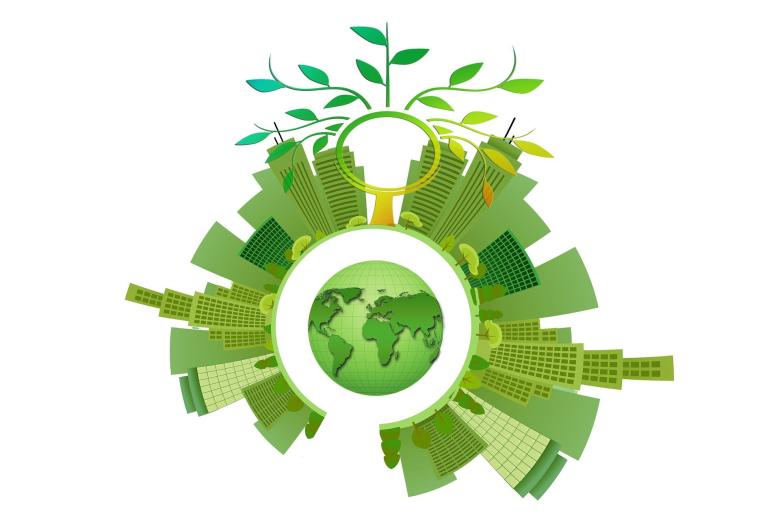Law and technology in higher education and research: a choice or a need?
Technological innovation and law have always made a good pair - as society evolves, so do (some of) our legal needs. Pockets of research expertise on law and technology have been around for decades, and so have law journals on the subject.
And yet, the influence of technology on legal research agendas has never been so palpable and ubiquitous. You can see this in jobs, initiatives, infrastructure and events. On the one hand, it is difficult to deny that the most recent wave of law and technology interest across Europe and beyond has the makings of a trend.
But on the other hand – and this is what I argue in this small piece – it is much more than a trend: it is a need.
As legal scholars, we are rigorously trained to ask questions that easily transcend centuries, even millennia: the problems that may occur in a contract of sale in 2018 are only a more sophisticated version of the same problems that occurred during an emptio-venditio in classical Roman law (e.g. bona fide; error in substantia, etc.). One massive difference, however, is that the Romans did not live in a highly interconnected world with artificial intelligence used to run their digital devices. But we do. Frans Timmermans gave a keynote speech at our Opening of the Academic Year just about a month ago, and he noted that even from a policy perspective, the fourth industrial revolution – which we are in the midst of – is the most intrusive revolution humankind has ever known. To understand all the implications of this technological revolution, we must leave the comfort of our own research grounds and try our best to understand it. If you’re interested in smart contracts, ask yourself: have you ever seen a smart contract? Have you met and spoken to a developer who writes smart contracts? If you want to write about algorithm governance, the same questions apply: have you ever sat down in front of a computer and seen someone write an algorithm? Or even toning down the technological difficulty – have you ever asked yourself why you might have 700 friends on Facebook and yet your wall only shows updates from about 50 of them? Or when you watch Netflix or Youtube, do you wonder how and why these platforms are able to know what you like and recommend new things for you to see?
When Ana Ramalho, Maja Brkan and I hosted the ‘InnovAItion Law for Technology 4.0’ conference in Brussels earlier this year, we saw the sheer benefits of interdisciplinary dialogue, as half of the speakers on our panels were computer scientists like Gerasimos Spanakis or Rico Möckel from the Department of Knowledge Engineering, or Michel Dumontier from the Institute of Knowledge Engineering – exactly the type of people who could answer all these questions above, and debunk myths that non-data scientists might perpetuate because of their lack of technological understanding. Computer scientists are already taking the lead and asking questions about law (see for instance this study by Princeton’s Arunesh Mathur et al. on affiliate marketing), so we must strive to meet them in the middle.
These are just a few reasons why I am personally a vehement supporter of lawyers (students, scholars and professionals) understanding how technology works. So how can we do that? While great, online resources are not as engaging, motivating or easy to embrace, so we need to develop our own platforms of bridging these gaps – platforms such as Technolawgeeks and LeD.
In October, the grassroots initiative I am proud to have launched back in 2016 together with ELS alumna and former staff member Caroline Calomme and DKE/ELS student Arturo Sanchez Barbado, and which started the year with a super exciting Hackathon, has hosted its most recent feat: Technolaweeks – a series of events taking place at different locations around Maastricht, which aim to bring together enthusiasts of law and technology:
- a talk by Marcel Schaper and Gijs van Dijck on their network analysis research;
- a presentation on the basics of artificial intelligence by Valentin Calomme (Mediaan/DKE);
- two hands-on workshops facilitated by the Institute of Data Science (Pedro Hernández Serrano, Kody Moodley and Nadine Rouleaux) on legal data visualisation tools and data science for non-data scientists;
- and a pizza game night where an enthusiastic 3rd year ELS student, Otso Malmberg, won a Mariokart tournament.
In addition to Technolaweeks, it is important to connect students with civil society or industry initiatives. One of our Technolawgeeks from this year, Laura Aade (2nd year ELS), attended a HiiL event in the Hague, and below you can find her notes on this.
Technolawgeeks is just one of the community initiatives at the Faculty of Law, now active under the umbrella of the recently created Maastricht Law & Tech Lab. If you missed the events but would like to hear more about law and technology and experience basic coding in R or Python, or learn more about machine learning or distributed ledger technologies, do reach out to Marcel Schaper, Gijs van Dijck or myself.
_______
How fair is justice if you do not have access to it?
Innovating Justice Challenge Regional Final for the Netherlands (The Hague, 2 October 2018)
By Laura Aade
The Hague Institute for the Innovation of Law (HiiL) organizes annually the Innovating Justice Challenge to find the best justice entrepreneurs in the world. On 2 October 2018, the Dutch Regional Finals took place in The Hague, The Netherlands. Six start-ups presented their projects within a four-minutes speech in the hope of securing funding and acceleration support.
All around the world, billions of people lack access to justice when they encounter a legal issue in their everyday life. It can lead to alarming consequences such as disagreements with a neighbour, loss of revenues, health problems or violence. In many cases, people cannot hire a lawyer to support them nor start legal proceedings. Either because they cannot afford the assistance or because the procedures seem to be outdated and excessively slow. At the present stage, creating new laws and improving the existing legal system might not be appropriate since it would decrease confidence in justice. What we are looking for are innovative and inspirational ideas. And this is where HiiL comes into play.
In 2005, HiiL has been created with the financial support of the Dutch Government and The Netherlands Organisation for Scientific Research. Its goal is to allow 150 million people to prevent and solve their most pressing legal issues by 2030. How? By conducting large scale surveys, measuring data and collaborating with justice innovations. The latter are selected through the Justice Innovation Challenge and are eligible to enter the acceleration programme (e.g. receiving funding, business development systems and marketing plans). They will be further introduced to local and international mentors in order to improve their initiatives. That is exactly what brought these six Dutch start-ups to this important event.
The Regional Finalists of the Netherlands:
1. Visual Contracts – an online platform that connects lawyers and mobile workers in order to apply legal design thinking and redraw legal documents, through an automatic visualisation.
www.visualcontracts.eu
2. Juridische Hulp Online (JHO) – provides services to individuals, entrepreneurs, law firms and businesses to draft/adjust legal documents and initiate legal procedures.
juridischehulponline.nl
3. New Dutch Connections – Know Your Rights – works to empower refugees by improving their legal knowledge, by helping them to integrate into society and to achieve personal goals.
newdutchconnections.nl
4. Online Schuldencoach – an online program, based on tutorial videos, to help people suffering from debts by providing them tools and a regular guidance to change their situation.
deonlineschuldencoach.nl
5. AcodeIT – an online platform which enables people to follow the status of their legal cases with a visual timeline. acodeit.com
6. Lexilu – centralised information on rights and obligations for foreign workers abroad via an offline app or online website.
The start-ups presented their projects based on the four following criteria: impact, sustainability, scalability and overall presentation. According to the audience, the best entrepreneur is New Dutch Connections – Know Your Rights. However, the Jury decided otherwise by proclaiming Juridische Hulp Online (JHO) as the winner of the event. Congratulations!
| More blogs on Law Blogs Maastricht |
-
Don’t sweat the small stuff? The new proposal for the EU directive on corporate sustainability due diligence
On 23 February 2022, the European Commission released the much anticipated proposal for the Directive on Corporate Sustainability Due Diligence. The aim of this Directive is to reduce human rights violations and environmental harms across the global value chain by making large companies carry out...

-
M-EPLI’s commitment to the “private side” of a sustainable world continues…
Achieving a sustainable way of life requires massive societal changes and (private international) law should enable, rather than hamper, the realization of such essential goals.

-
The European Super League: opening the floodgates of competition law
Recent days have seen the meteoric rise and fall of the European Super League (ESL). This new league would have consisted of 15 founding clubs and 5 other clubs; the former consisting of ‘big clubs’ which could not be relegated and the latter in clubs who performed well over the past years on a...
